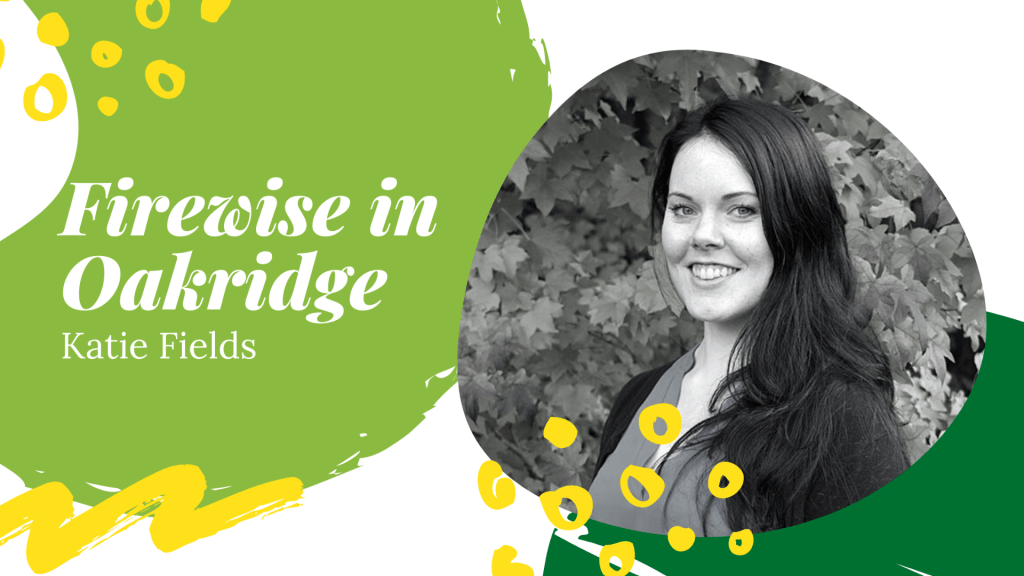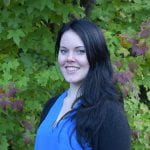
By Katie Fields, Outreach Coordinator, South Willamette Forest Collaborative
The hazy skies that obscured the sun for weeks in September 2020 sent a stark message to all Oregonians about the pressing reality of wildfire, even in the “wet side” Western Cascades. Those of us lucky enough to keep our homes were placed on a virtual house arrest, sweating in the stifling heat while it was unsafe to crack a window.
At the southern end of the Willamette National Forest (WNF), the community of Oakridge became keenly aware that one of its greatest assets is simultaneously one of its most urgent vulnerabilities: it is surrounded by forest. Of the WNF’s four districts, the Middle Fork Ranger District (MFRD) that encircles Oakridge was the only district not directly impacted by last year’s Labor Day fires after successfully suppressing a five-acre fire east of Oakridge. As the community of Blue River was incinerated on the watershed to the north and the Archie Creek Fire burned through Glide just to the south, the calls to create healthier forests and resilient communities became instantly more urgent.
The Southern Willamette Forest Collaborative has worked with the MFRD for the past seven years to increase the pace of restoration on the forest. Lower-intensity burning is part of the landscape, and the Molalla and Kalapuya people stewarded these landscapes for millennia before white settlers appeared and the era of fire suppression began. These lower-intensity, planned burns have shaped the ecology of the forests, but the “10:00 am” policy of putting out any fire by 10:00 am the next day took a toll; forests are now less diverse, and fuel loads are much larger.
While restoration work moves forward, the necessary pace and scale are simply outside of the capacity of funding and on-the-ground work. The Oakridge community is vulnerable.
Fortunately, Oakridge Air, a program co-managed by South Willamette Solutions, has been able to incorporate Firewise into its programming. Firewise is a national program that helps communities address vulnerability to wildfire and provides education and resources for residents to create defensible space around their homes.
The Oregon Department of Forestry and Oakridge Air collaborated in 2020 to complete the Firewise Assessment for the Greater Oakridge area, and the area was designated a Firewise community in December. This area includes the city of Westfir and other outlying communities such as High Prairie.
While the greater Oakridge area includes about 500 homes, the area within city limits includes more than 1400 homes, making completion of home assessments a much larger task. The effort to Firewise within the city limits kicked off on Friday, February 26 with RARE members, Oakridge Air managers, and City, ODF, and Forest Service staff going out to complete evaluations of fire risk in Oakridge’s neighborhoods.
RARE will play a key role in the ongoing efforts to achieve Firewise designation and related efforts to support the community during wildfires. The SWS RARE member has been deeply engaged in the development of a community smoke safety plan, supported by the Oregon Department of Environmental Quality, that provides information about what to do when smoke rolls in from wildfire and other smoke sources. The DEQ has invited SWS to build out a toolkit to be used by other communities to inform outreach and coordination during smoke events. The SWS RARE member is helping to develop this toolkit and has also been involved in outreach for the Oakridge yard waste program, which enables residents to reduce vegetation fire hazards on their properties by bringing it to a drop-off site where it will eventually be converted into wood chips.
As Firewise work continues, there is reason for Oakridge to feel hopeful. Wildfire is all but a certainty, but the community is beginning to create a future where it is possible to live with fire, use it appropriately to re-create healthy forests, and work together to ensure everyone’s health and safety when fires strike.
 About the author, Katie Fields: Katie graduated from the University of Oregon with concurrent master’s degrees in public administration and conflict and dispute resolution. These two degrees advanced her knowledge and experience in the fields of collaborative governance and environmental policy. During her time at UO, she worked as a graduate employee with the Sustainable City Year Program (SCYP). In this role, she supported rural community partners including the cities of La Pine and Silverton in matching UO classes with community projects. Katie also interned with the Southern Willamette Forest Collaborative and the National Policy Consensus Center during her studies. For these internships, she co-authored a stakeholder engagement strategy and the Oregon Atlas of Collaboration.
About the author, Katie Fields: Katie graduated from the University of Oregon with concurrent master’s degrees in public administration and conflict and dispute resolution. These two degrees advanced her knowledge and experience in the fields of collaborative governance and environmental policy. During her time at UO, she worked as a graduate employee with the Sustainable City Year Program (SCYP). In this role, she supported rural community partners including the cities of La Pine and Silverton in matching UO classes with community projects. Katie also interned with the Southern Willamette Forest Collaborative and the National Policy Consensus Center during her studies. For these internships, she co-authored a stakeholder engagement strategy and the Oregon Atlas of Collaboration.

